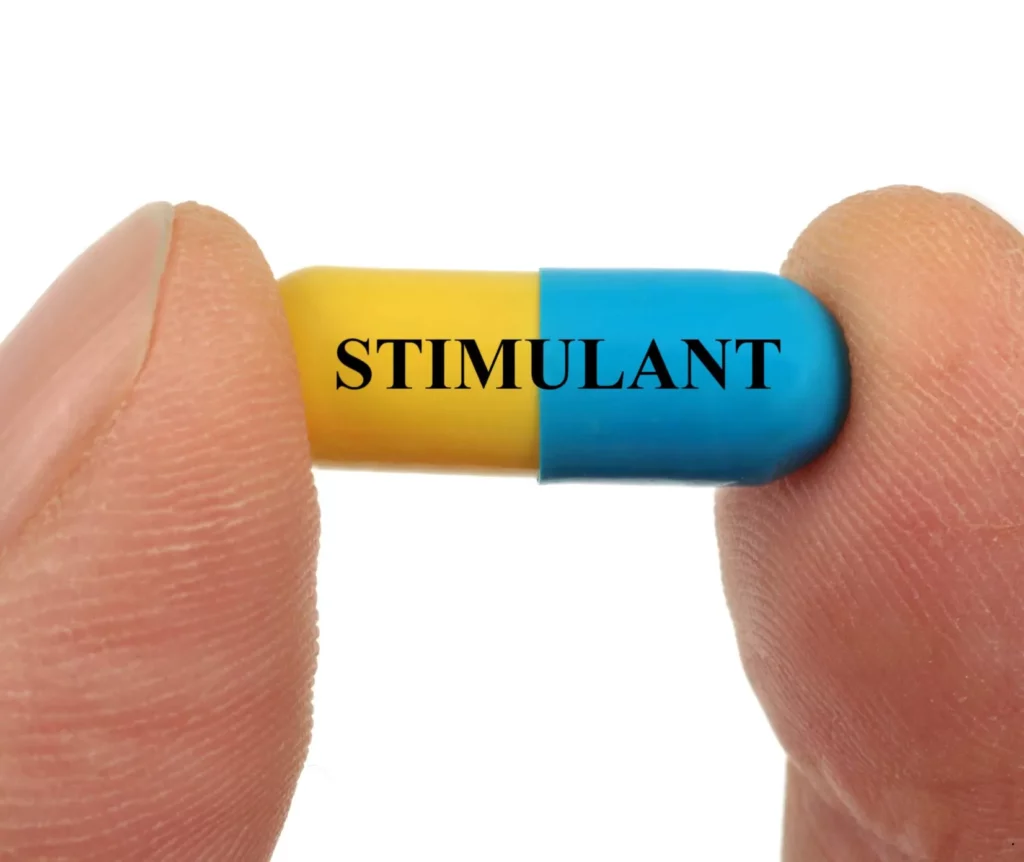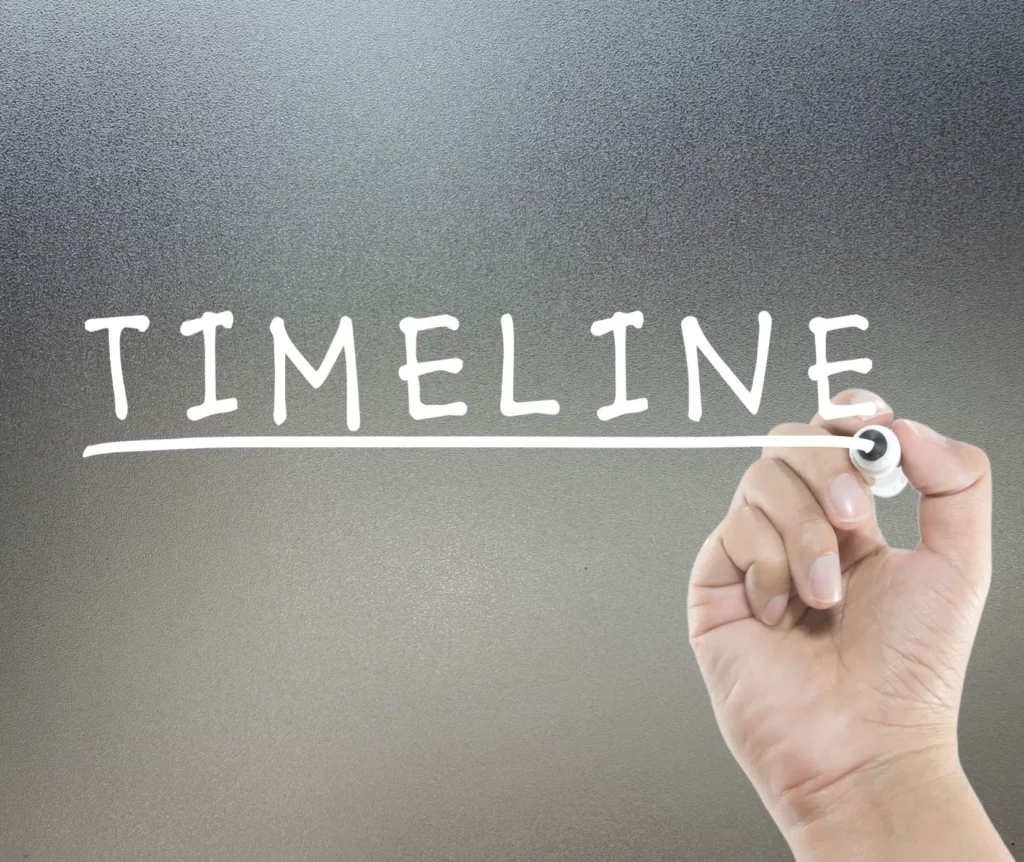Start Your Stimulant Detox Today
Stimulants, when abused, can lead to severe addiction. Pacific Interventions provides the ideal environment for starting your stimulant detox journey, offering both detoxification and comprehensive aftercare plans to support lasting recovery.

Stimulant Detox Timeline
Stimulant withdrawal symptoms typically begin within the first 24 hours and last for 3 to 5 days. However, these primary symptoms may be followed by a post-withdrawal phase lasting 1 to 2 months.

Risks of Stimulant Withdrawal
Stimulant withdrawal can lead to severe and potentially life-threatening symptoms, especially without medical supervision. Risks include intense mood swings, severe depression, and anxiety, which may persist for weeks post-detox.
Physical dangers, such as seizures and cardiovascular issues, are also possible, especially for those with long-term or high-dosage stimulant use.
Due to these risks, professional medical support is critical during stimulant detox to monitor symptoms, manage complications, and ensure a safer transition to recovery.

Take the First Step Towards Recovery
Is Stimulant Detox Necessary?
Detoxification is often essential for individuals misusing stimulants, as prolonged misuse disrupts brain chemistry and can lead to dependency, psychological distress, and cognitive decline.
Without detox, these risks compound, making it harder to restore normal brain function. For those experiencing health or behavioral issues tied to stimulant use, detox is a crucial first step toward recovery and restoring long-term well-being.
Effects of Stimulants on the Brain
When used appropriately for medical purposes, stimulants can improve productivity, especially in individuals with ADHD. However, misuse disrupts dopamine reuptake, leading to elevated dopamine levels and various effects:
Psychological Effects
Elevated dopamine can produce symptoms resembling schizophrenia, such as delusions, hallucinations, and paranoia.
Behavioral Effects
Increased dopamine influences mood, raising the chances of risky behaviors related to drug misuse, including impulsivity and poor decision-making.
Symptoms of Stimulant Withdrawal
Stimulant withdrawal symptoms vary based on individual genetics and drug use history. Common symptoms include:
Anxiety and Depression
Stimulants elevate mood by blocking dopamine reuptake, but as they wear off, dopamine levels drop, leading to anxiety, irritability, and depression. Mood swings can be intense, especially for individuals with a history of mental health issues.
Difficulty Focusing
While stimulants are used to enhance focus, misuse can impair concentration, making it hard to maintain attention or make clear decisions during withdrawal.
Reduced Cognitive Function
Long-term stimulant use can weaken memory and processing abilities, potentially leading to irreversible cognitive impairment.
Sleep Disruptions
Stimulants interfere with melatonin release, disturbing the natural sleep cycle. Insomnia and irregular sleep patterns are common and can contribute to overall fatigue.
Physical Fatigue and Low Energy
As the body adjusts to stimulant absence, many individuals experience significant fatigue, with reduced energy levels that affect daily activities and motivation.
Signs You Need Stimulant Detox
Pacific Interventions recommends stimulant detox if any of these signs are impacting your life:
Career Impact
Challenges with focus, memory, decision-making, or productivity may result in poor job performance or even job loss.
Strained Relationships
Impulsive or irrational behavior due to stimulant use can distance friends and family, leading to social isolation.
Physical Health Decline
Persistent fatigue, poor motor skills, weight fluctuations, and reduced energy or coordination can signal a decline in physical health.
Mental Health Struggles
Feelings of sadness, restlessness, heightened anxiety, or difficulty finding joy without stimulants may indicate a need for detox.
Financial Instability:
Excessive spending on stimulants can drain finances, increase stress, and lead to debt.
Emotional Volatility
Mood swings, irritability, or aggression can disrupt daily life and strain personal relationships.
Sleep Disruptions
Stimulant use may disrupt regular sleep patterns, leading to insomnia or hypersomnia and further health complications.
Side Effects of Stimulant Detox
Stimulant detox requires medical supervision to manage both physical and emotional side effects safely. Common side effects include:
- Intense Cravings: During detox, individuals often experience powerful urges to use stimulants again, which can be challenging to manage without support.
- Anxiety and Depression: The sudden absence of stimulants can lead to mood swings, irritability, and symptoms of depression, particularly for those with a history of mental health challenges.
- Fatigue and Insomnia: Detox can disrupt normal sleep patterns, causing insomnia or, conversely, extreme fatigue as the body recalibrates.
- Appetite Changes: Many experience a significant increase or decrease in appetite, as stimulants typically suppress hunger.
- Agitation or Aggression: Restlessness and irritability are common, sometimes resulting in short-tempered or aggressive behavior during withdrawal.
Take the First Step Towards Recovery
FAQ
If stimulant use—whether prolonged or short-term—has significantly affected your work productivity, relationships, or health, you may benefit from stimulant detox.
At Pacific Interventions, we strongly advise against attempting stimulant detox at home due to the risk of severe, potentially life-threatening reactions, such as seizures. Medical supervision is essential for safety.
Yes, our stimulant detox and aftercare programs are tailored to each patient’s medical and drug use history, helping individuals start a sober life regardless of their specific addiction.
Stimulant detox often involves symptoms like fatigue, mood swings, and cravings. At Pacific Interventions, we provide close monitoring and support to manage these effects safely.
What Our Patients Say About US
Posted onTrustindex verifies that the original source of the review is Google. This is a great rehab program and I definitely recommend them.Posted onTrustindex verifies that the original source of the review is Google. First rate service from start to finish. Thank you for your help!Posted onTrustindex verifies that the original source of the review is Google. I’m so grateful for this service. It helped me make the first steps to changing my life.Posted onTrustindex verifies that the original source of the review is Google. I strongly recommend this place for anybody struggling with alcohol and drug addictionPosted onTrustindex verifies that the original source of the review is Google. Pacific intervention provided a service unlike any other I have ever experienced. They really focused on me as an individual and I felt like they really cared. I had a team behind me and they gave me the tools I needed to move forward in my life.Posted onTrustindex verifies that the original source of the review is Google. I am writing this review on behalf of our entire family. When our son came to us and said he had a drug problem, we were horrified. We quickly started looking for services to help. We called a number of places with very limited satisfaction. No one was explaining to us what was going on with our son, they only seemed interested in taking our money. That was until we spoke to Jeff at Pacific Interventions. He took the time to explain addiction, current treatment approaches, recovery, and how we could help. Our son ended up attending the 6 week outpatient program with Pacific Interventions. He graduated the program and is currently taking part in their aftercare program. Our son is back to the person we thought we had lost. He has confidence, self-esteem and our relationships with him are all much improved. Our family participated in the family program which offered us real solutions to broken trust, conflicts, and ways to help build our son up and support his recovery. We are all extremely grateful for the help of the entire team at Pacific Interventions for following through on what they said they would do, and helping our family heal.
Need Help Right Away? We are Here to Support You!
If you have an emergency, contact your local hospital or dial 911 immediately

